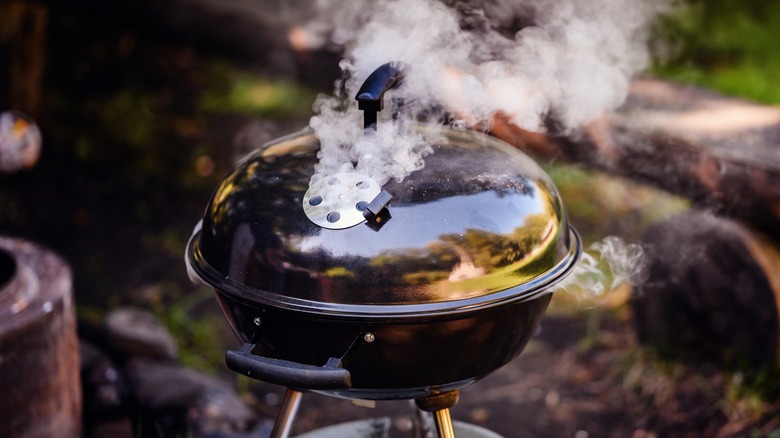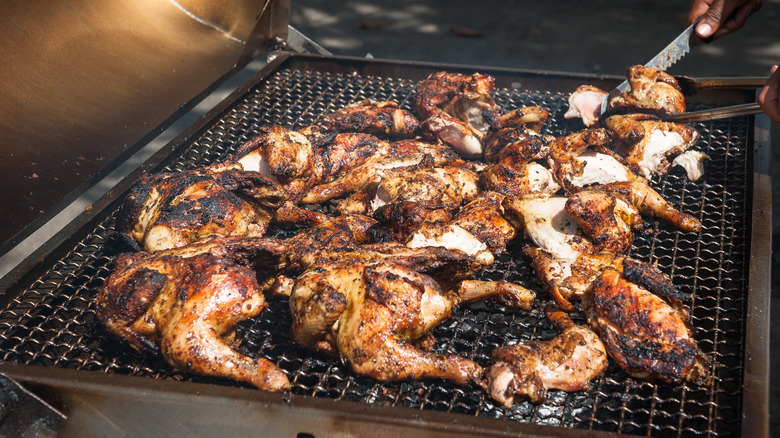Here's Why You Should Keep Your Grill Shut When Cooking Chicken
We may receive a commission on purchases made from links.
If you want to become a true pitmaster, there are some basic grilling rules to keep in mind to perfect your game. For example, one of the biggest ways you might be grilling your chicken all wrong is by leaving the grill open.
According to Brazilian grill master, private chef, and catering director of Tropicali Brazilian Kitchen Silvio Correa, keeping the grill shut is essential for making the best grilled chicken. "Cooking with the grill open can lead to uneven cooking," Correa explains. "The chicken cooks too quickly on the outside while the inside may remain undercooked."
If there's one thing we know to be true about Brazilian steakhouses, it's that they're about more than just mountains of meat. The art of grilling is an integral part of Brazilian culture. So, it only makes sense to heed the advice of its experts. "In Brazilian barbecue, we often cover the grill to maintain consistent heat," Correa points out. "Keep the grill closed for more even heat distribution and avoid constantly checking." This is because every time you lift the lid, heat escapes — and it can drop the overall temperature a lot faster than you think. So, just trust the process and resist the urge to keep peeking!
Master grill temperature for perfectly grilled chicken
A closed grill works similarly to an oven, circulating steady heat around the chicken and helping it cook evenly. It also preserves moisture to prevent the meat from drying out. Keeping the lid on it can also help reduce flare-ups and avoid burnt-to-a-crisp skin. However, that's only part of the equation for perfectly grilled, juicy chicken.
"Use a meat thermometer instead to ensure it's cooking correctly — you're aiming for an internal temperature of 165 [degrees Fahrenheit]," Silvio Correa adds. A device like this ThermoPro digital meat thermometer can help you keep an eye on the temperature without opening the grill. You can even set an alert for a specific temperature so you know exactly when it's time to flip or remove the chicken.
Also, use indirect heat for larger, bone-in cuts of chicken and direct heat for smaller pieces, like boneless grilled chicken breasts. Since indirect heat puts the meat farther away from the hot coals, you must leave the grill closed to contain the heat and ensure the inside maintains a consistent temperature. One more pro tip: Brine your chicken before it hits the grill. It's easy to make a brine from scratch, or you can buy a pre-made seasoning mix like Malcolm's Bird Brine.

